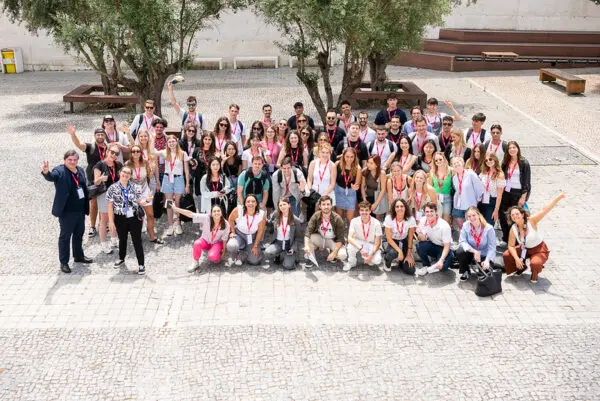
Maastricht, Netherlands
Knowledge Management for Young Professionals
When:
18 August - 22 August 2025
Credits:
2 EC
Read more
Business & Entrepreneurship
When:
23 June - 25 July 2025
School:
Institution:
Copenhagen Business School
City:
Country:
Language:
English
Credits:
7.5 EC
Fee:
820 EUR

As business grows increasingly international due to the interaction, exchange, and interdependence amongst nations, firms, and people around the world, more firms are confronting this exciting yet challenging dynamic.
Small and medium-sized enterprises (SMEs) are no exception. SMEs are important players in most economies around the world, and with the acceleration of globalization processes, a record number of SMEs have begun to take advantage of new environmental conditions presenting opportunities for international growth.
SMEs are no longer considered to be miniature versions of large firms. Indeed, they are now understood to be particular enterprises with specific characteristics, specifically in the ways in which they develop strategies for sustainable growth, lead responsibly, approach investments, contribute to societal sustainability, and manage human capital.
Globalization both poses dramatic new competitive challenges and also offers new opportunities which are increasingly important to the competitiveness of enterprises of all sizes. Success in the global arena demands mindsets that can develop strategies by blending skills and experiences of entrepreneurial firms with those of large international companies.
This course aims to help students make sense of how this international dynamic impacts SMEs.
We begin by discussing the specific characteristics of small and medium-sized enterprises (SMEs) paying particular attention to their prevalence, significance, and economic contribution to most economies around the globe, followed by an examination of their (dis)advantages. The course outlines various types of SMEs including but not limited to micro-businesses, startups, and family firms. Thereafter, we discuss the ways in which SMEs internationalize, and why. Theories of international business and sustainability will be studied, focusing specifically on SMEs and the ways in which they strategize in an ever more complex interdependent global business environment.
Preliminary assignment: The preliminary assignment is intended to help students get maximum value from ISUP courses. The lecturer will assign several readings and multimedia resources which students will be expected to have read and viewed before the course begins. Students are assigned questions pertaining the preliminary readings and will be expected to discuss these questions in the first lecture. This assignment is intended to help 'jump-start' the learning process before the first lecture.
Class 1: Contextualizing Small and Medium-Sized Enterprises (SMEs): Definition & significance (+case method introduction)
Class 2:SME ownership and governance: The impact of owner & board hetero/homogeneity
Class 3:Competitive advantage(s) of SMEs & determinants of SME internationalization
Feedback activity: Project topic proposal will be submitted by end of week 1 to allow time for feedback.
Class 4: Strategic management of SMEs
Class 5: Theoretical foundations of internationalization and sustainability: history and context
Class 6: Classical approaches towards SME internationalization
Class 7: The Internationalization processes of SMEs: context & regional differences
Class 8: Drivers of sustainable international growth: Human capital, social capital, & board influence
Class 9: Internationalization strategies for SMEs: the beauty of Born Globals
Class 10: 21st Century sustainable leadership: SME competences
Class 11: The competitive advantages of international SMEs
Anne Sluhan and Bersant Hobdar
This is a graduate level course. CBS Summer University courses at Copenhagen Business School is open to all and welcomes domestic and international students as well as professionals.
Fee
820 EUR, EU/EEA/Swiss nationals
Fee
2000 EUR, Non-EU national
When:
23 June - 25 July 2025
School:
Institution:
Copenhagen Business School
Language:
English
Credits:
7.5 EC

Maastricht, Netherlands
When:
18 August - 22 August 2025
Credits:
2 EC
Read more

Aarhus, Denmark
When:
23 July - 08 August 2025
Credits:
5 EC
Read more

Lisbon, Portugal
When:
14 July - 31 July 2025
Credits:
6 EC
Read more